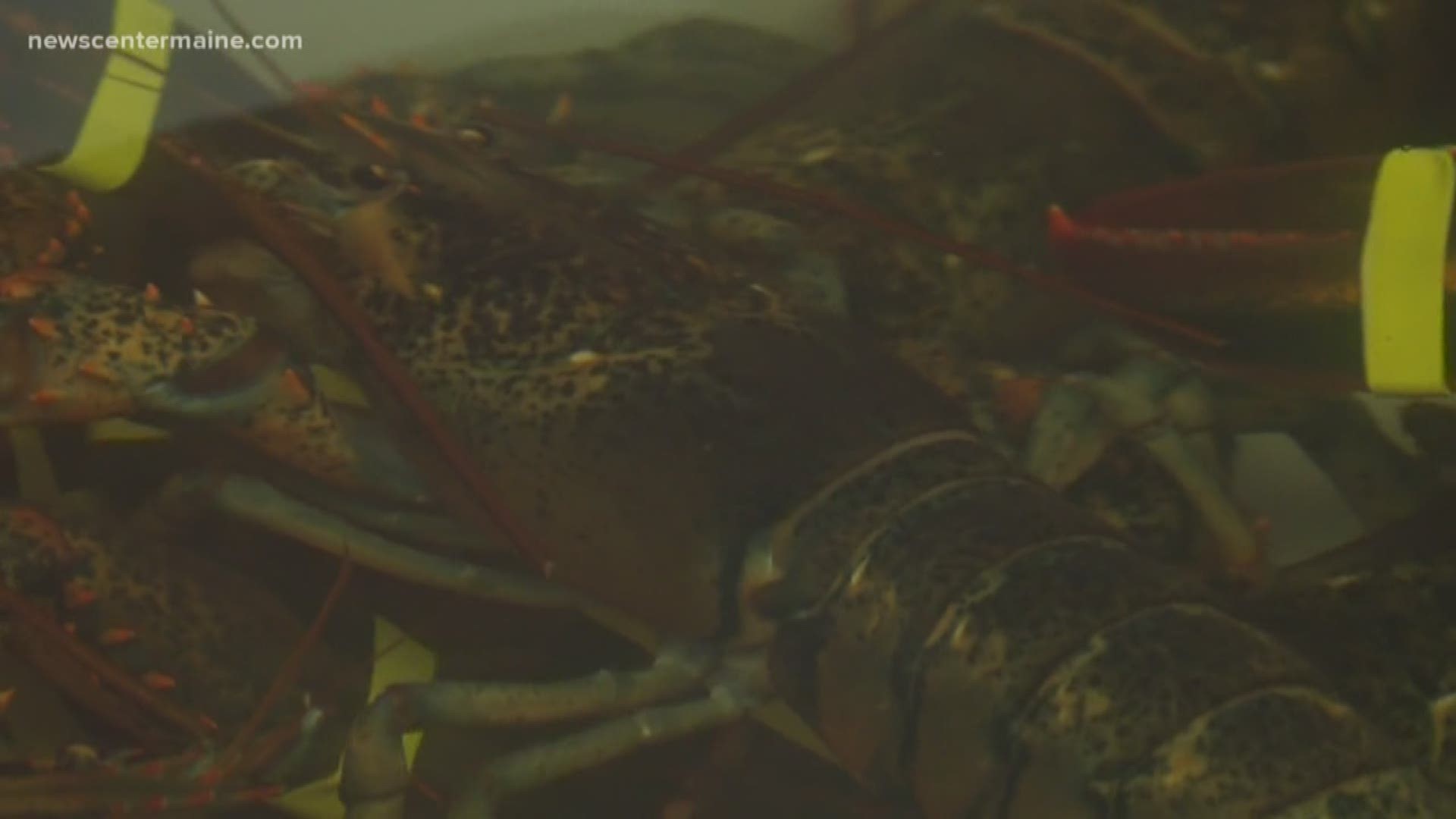WALPOLE AND SOUTHWEST HARBOR (NEWS CENTER Maine) -- There is very little science out there on the topic of lobsters and cannabis.
There has been a lot of interest in the topic lately though, ever since the story of a Maine lobster shack owner who is experimenting with lobsters and THC, the main calming ingredient in marijuana, went viral online last week.


Richard Wahle is the newly-named director of the Lobster Institute at the University of Maine, and is a research professor in the School of Marine Sciences.
“In a world where use of marijuana is becoming more common and legal, and at the same time, people are looking for ways to make the transfer of lobsters from life to the boiling pot a little more gentle, maybe we shouldn't be too surprised here," said Wahle, over the phone from the Darling Marine Center in Walpole.
When Wahle first heard about Charlotte Gill and what she was doing at "Charlotte's Legendary Lobster Pound" in Southwest Harbor, he was "intrigued, and maybe a little dismissive."
He began looking into the topic of lobsters and cannabis Monday, and found an article in the journal "Neuropharmacology" of a study from 1988, about "the changes in neurotransmitters of the lobster when exposed to canabanoids."
“Lobsters do have gills and to the extent they are similar to the lung is that there’s a moist membrane there at the interface of the air and the body and so chemicals can be transmitted across that membrane," said Wahle. “There may be more efficient ways to do that in a water medium but we’re sort of working at the fringe of science here with the respect to the activity of cannabinoids in lobsters."
Wahle says the 1988 study is the only study he looked at, but there may have been other studies done since then.
“I guess I stopped being surprised when it comes to lobsters," added Wahle. "All sorts of things come up in this world when it comes to lobsters. The lobsters are put in all sorts of odd situations."
Gill has also been put in an odd situation, after word of her cannabis experiments on lobsters got out.
As previously reported, state health inspectors had reached out to Gill, asking her not to move forward with selling her "half-baked" lobsters to the public.
According to Gill, the investigation by the state has been closed.
Still, if the state's Department of Health and Human Services ruled one way or another on Gill being allowed to serve lobsters treated with cannabis, Wahle wouldn't argue with their decision.
“I can’t speak to how advisable it would be to serve lobsters that have been treated with cannabinoids," said Wahle. “The lobster shack owner may be onto something here but at the same token, I have my reservations about serving lobsters that have been treated with cannabis."
Gill says she is not currently selling these lobsters at her restaurant, nor has she ever done so. However, due to public demand, she is making plans to begin selling these lobsters to the public by mid to late October.


In a message to NEWS CENTER Maine, Gill says she has no plans to charge more for these lobsters "as ultimately we are doing this out of compassion for the lobsters and their well being, not our own."
Of her and her employees at the lobster shack, Gill adds they're "only a little group of hardworking Mainers, trying to make the world a kinder place one lobster at a time."

